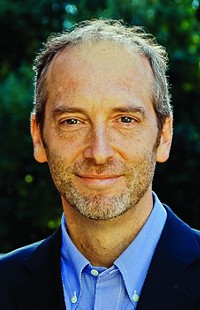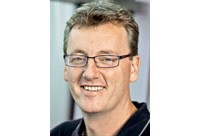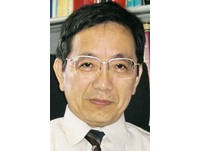Advertisement
Grab your lab coat. Let's get started
Welcome!
Welcome!
Create an account below to get 6 C&EN articles per month, receive newsletters and more - all free.
It seems this is your first time logging in online. Please enter the following information to continue.
As an ACS member you automatically get access to this site. All we need is few more details to create your reading experience.
Not you? Sign in with a different account.
Not you? Sign in with a different account.
ERROR 1
ERROR 1
ERROR 2
ERROR 2
ERROR 2
ERROR 2
ERROR 2
Password and Confirm password must match.
If you have an ACS member number, please enter it here so we can link this account to your membership. (optional)
ERROR 2
ACS values your privacy. By submitting your information, you are gaining access to C&EN and subscribing to our weekly newsletter. We use the information you provide to make your reading experience better, and we will never sell your data to third party members.
Synthesis
ACS Award for Creative Work in Synthetic Organic Chemistry
January 29, 2007
| A version of this story appeared in
Volume 85, Issue 5
Sponsored by Aldrich Chemical Co.
There are few practicing synthetic chemists who have not used a reagent or reaction created by Steven V. Ley. This renders his contributions to synthetic organic chemistry pervasive, especially on the front lines of research, his colleagues in the field conclude.
A prolific and renowned chemist whose research group has achieved total syntheses of more than 110 complex natural products, Ley, 61, is now being recognized for his overall creativity and ingenuity in devising innovative methods for organic synthesis. His approaches are not only inventive but also useful and relevant to important problems, remarks Leo A. Paquette, emeritus professor of chemistry at Ohio State University and Ley's postdoctoral adviser.
"A clear example is his pioneering and highly cited use of supported reagent systems and their application in multistep syntheses," points out Alastair I. Scott, professor of chemistry at Texas A&M University. "Also, his work on organocatalysis, the use of perovskites in organic synthesis, butane diacetal chemistry, and flow chemistry are all new developments."
Immobilized reagents developed by Ley have become widely used in industry. He devised a novel process involving the encapsulation of catalysts in polyurea. Initial research focused on palladium(II) acetate microcapsules, which proved to be robust and recyclable in synthetic processes, such as hydrogenation reactions. The work has been extended to palladium(0) catalysts, used in epoxide hydrogenolysis, and osmium tetroxide, a highly useful catalyst for the dihydroxylation of olefins but too toxic and volatile in unencapsulated form to be practical.
More recently, Ley has broadened the use of supported reagents and catalysts into the important area of continuous-flow chemistry. Multistep reactions using solid-supported reagents can proceed without the need for chromatography or any workup other than filtration and evaporation. "No doubt this will have a significant impact on how we do chemistry in the near future," Scott adds.
Besides continuous-flow chemistry, Ley has championed the application of other new technologies, including microwaves, ultrasound, robotics, informatics, and design of experiments in chemical synthesis. He was one of the first to use fully automated focused-microwave synthesizers for rapid synthesis and reaction optimization in both traditional and polymer-supported systems. He has pioneered microwave heating using ionic liquids for heat transfer in low microwave-absorbent solvents.
"His synthetic work is characterized by an intellectual and practical flair that he uses to considerable effect," Scott adds. Highlights include the synthesis of spiroketal antiparasitic agents from the milbemycin and avermectin series and the syntheses of okadaic acid, tetronasin, and routiennocin. In all, Ley has published more than 600 papers thus far in his career.
He received a B.Sc. degree in 1969 and a Ph.D. in 1972 from Loughborough University, in England. After postdoctoral fellowships, first with Paquette and then with Sir Derek H. R. Barton at Imperial College London, he joined the faculty there in 1975. In 1992, he moved to the University of Cambridge, where he is now a professor of chemistry and a Novartis Research Fellow. He has won at least 30 major international prizes and awards, is past president of the Royal Society of Chemistry, and was made a Commander of the British Empire in 2002.
The award address will be presented before the Division of Organic Chemistry.






Join the conversation
Contact the reporter
Submit a Letter to the Editor for publication
Engage with us on Twitter